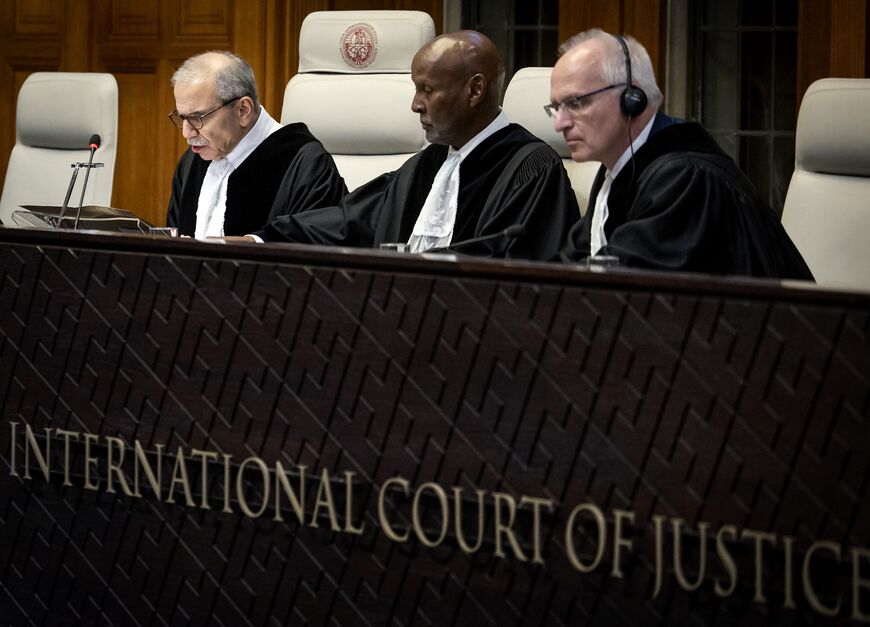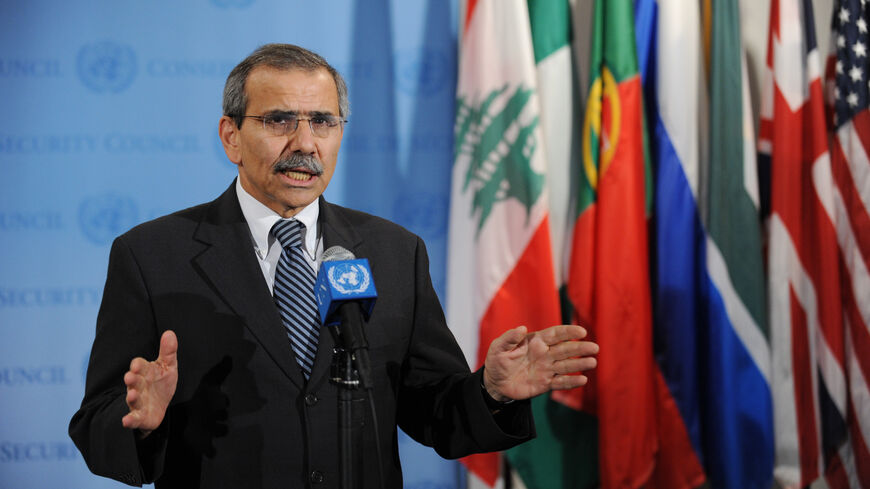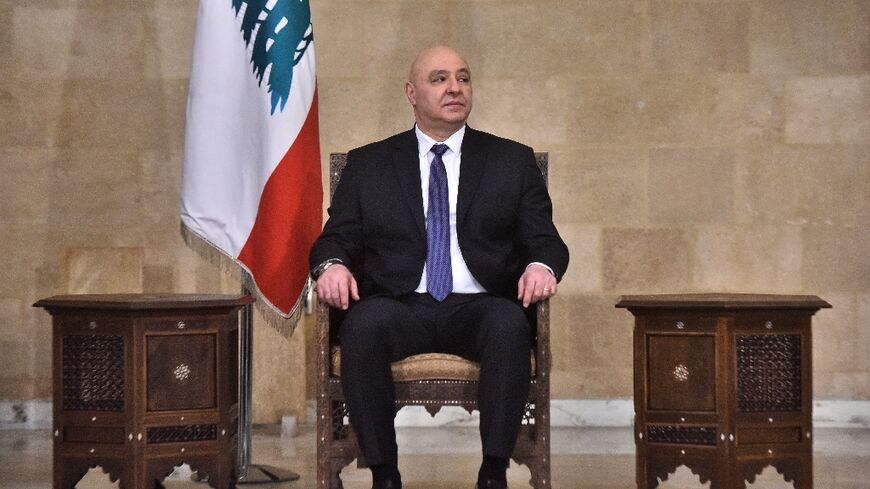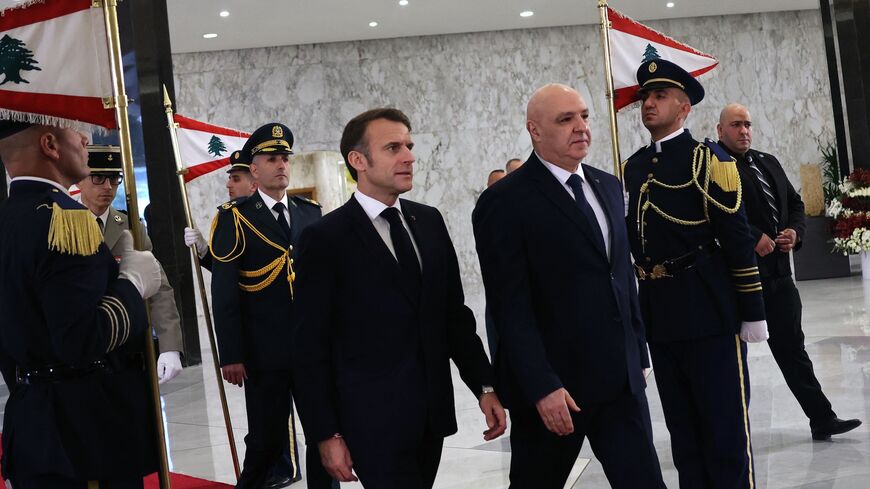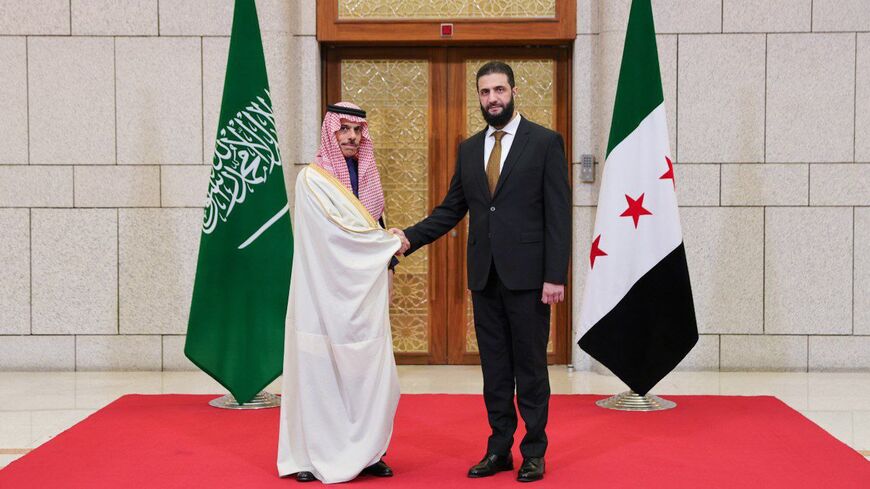Nawaf Salam secures enough votes to be Lebanon's next prime minister
The ICJ president is not a Hezbollah favorite, but has secured the backing of more than 70 parliamentarians to be Lebanon's next prime minister.
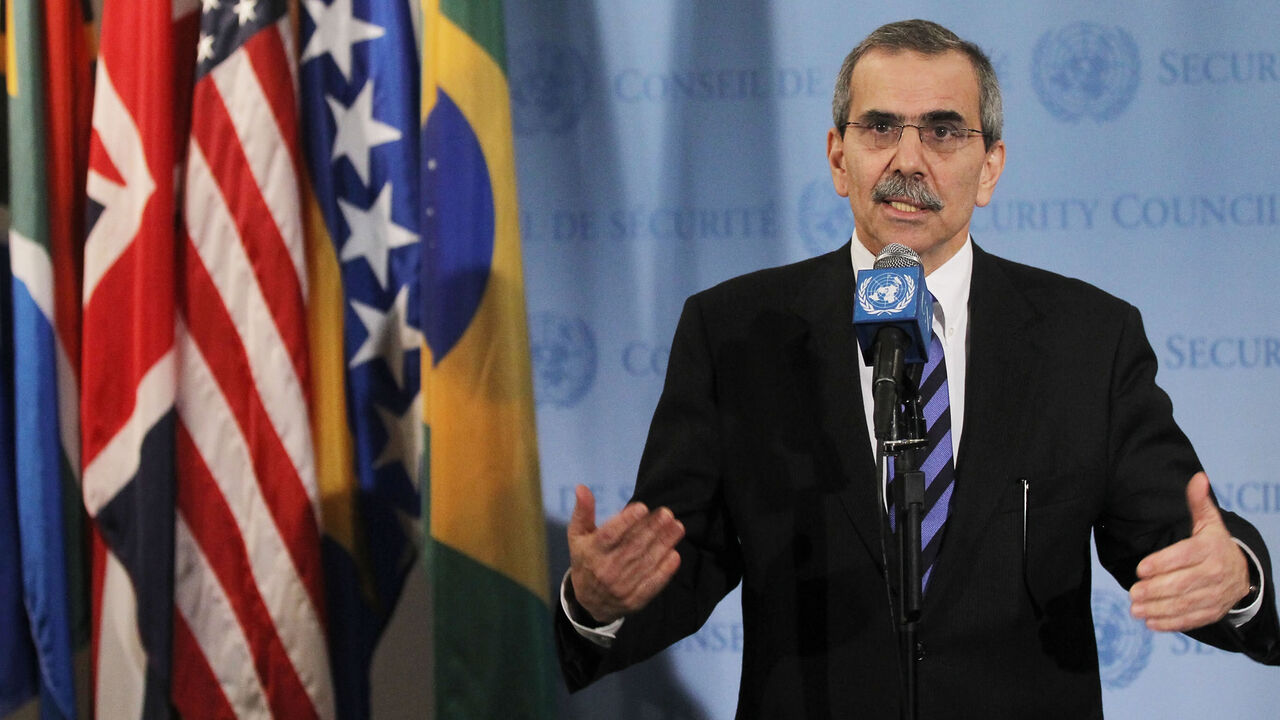
BEIRUT — In another political twist in Beirut, Lebanese judge and veteran diplomat Nawaf Salam secured the nomination to be the country’s prime minister and form a new government on Monday. The move deals another blow to the Iran-backed coalition in Lebanon that favored the current caretaker premier, Najib Mikati.
The office of the Lebanese Presidency announced on Monday afternoon local time that newly elected President Joseph Aoun has nominated Salam to form the next government.
Salam, Lebanon’s former ambassador to the United Nations and current head of the International Court of Justice, was endorsed by at least 84 out of 128 parliamentarians as of the time of this writing, securing the needed majority to become prime minister. Following intense consultations between Aoun and the parliamentarians, the blocs that named Salam include the “Strong Lebanon” bloc led by the head of the Free Patriotic Movement, Gebran Bassil; the “Democratic Gathering” bloc led by Taymour Jumblatt (son of Druze leader Walid Jumblatt); and the “Strong Republic” bloc that includes parliament members from the Lebanese Forces party. The Kataeb (Phalanges) party also named Salam.
Nawaf, who currently resides at the Hague, will arrive in Beirut on Tuesday morning, local media reported.
Salam’s designation deals another blow to Hezbollah, which had backed Mikati for another term in the premiership. As of yet, the Hezbollah-affiliated bloc in parliament is still in consultations with the president.
Salam now faces the tough task of forming a government that is acceptable to the parliamentary blocs. He will then propose his cabinet lineup to the president, who must approve it in a presidential decree.
According to the Lebanese constitution, the government will then submit its ministerial statement to parliament for a vote of confidence within 30 days of the issuance of the decree.
Hezbollah, which had gained considerable influence in the country and region and had a vast arsenal that is estimated to include some 150,000 to 200,000 rockets, suffered major losses during the recent war with Israel that ended Nov. 27 with a US-brokered ceasefire. The party also was dealt a blow following the toppling of Bashar al-Assad in Syria on Dec. 8.
(From L) Judge Nawaf Salam, Judge Abdulqawi Ahmed Yusuf and Judge Georg Nolte attend a hearing at the International Court of Justice on South Africa's request for a Gaza ceasefire in The Hague, on May 24, 2024. (KOEN VAN WEEL/ANP/AFP via Getty Images)
Who is Nawaf Salam?
Salam was born in Beirut in 1953. From 2007 to 2017, he served as Lebanon’s representative to the UN. He became a member of the ICJ in 2018. Salam has practiced law privately in Beirut and worked for several universities, including his alma maters, according to his ICJ biography.
Salam joined the UN’s top court as a judge in 2018 and has headed the ICJ since last February.
As president of the ICJ, he oversaw the genocide case brought by South Africa against Israel over its war in the Gaza Strip in December 2023. Last January, the ICJ delivered a ruling on on the emergency measures requested by South Africa and ordered Israel to take “all measures within its power” to prevent genocide in Gaza.
The new premier has a rich educational background, holding diplomas from prominent world schools, including a doctorate in political science from the Institut d'Études Politiques de Paris, another doctorate in history from the Sorbonne University and a master’s of law from Harvard Law School.
Salam assumes office at a critical juncture for Lebanon, which is grappling with an unprecedented economic and financial collapse. He is seen as an outsider and an incorruptible figure in Lebanese politics.
Lebanon had been without a head of state since October 2022, when the term of then Hezbollah-backed former President Michel Aoun (no relation to Gen. Aoun) ended and had been functioning under a caretaker government with limited powers.
Since the country’s financial collapse in October 2019, Lebanon’s political elite, which many Lebanese accuse of corruption, have failed to implement the reforms required by international donors to unlock much needed aid.
The election of Aoun as president last week — following weeks of international pressure led mainly by the United States and Saudi Arabia — is seen as an opportunity to regain the confidence of the international community to revive the country’s ailing economy.
“My pledge is to call for quick parliamentary consultations to appoint a prime minister who is a partner in responsibility, not an opponent,” Aoun stressed during his inaugural speech last Thursday.
Under Lebanon’s sectarian power-sharing system, the presidency is reserved for a Maronite Christian, while the prime minister must be a Sunni Muslim and the parliament speaker a Shiite Muslim.
This developing story has been updated since initial publication.

